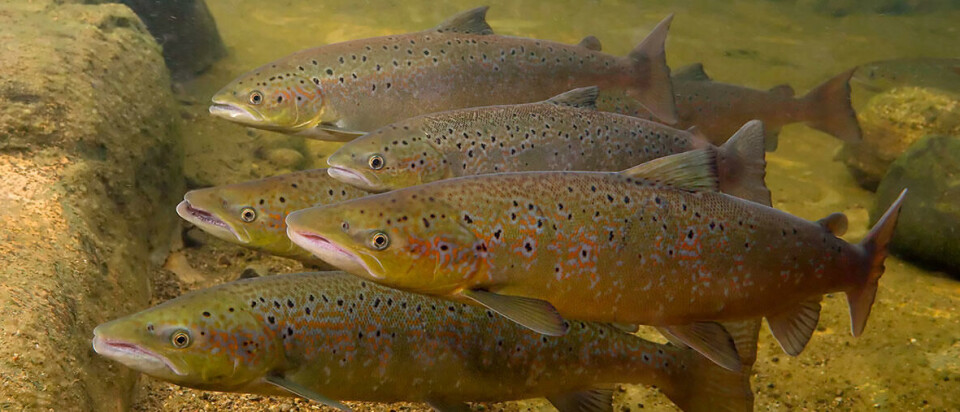
Wild salmon ‘home advantage’ may lessen impact of escapes
Wild Atlantic salmon spawning in the rivers where they were born have a “home advantage” in mating over those born in other streams, a four-year study in Finland has concluded.
And that means that restocking rivers using only local stocks may also lessen any impact from escaped farmed salmon, according to one of the report’s authors.
In an article of the University of Helsinki’s website, Dr Kenyon Mobley, a researcher at the university’s Faculty of Biological and Environmental Sciences, said: “Our results support earlier studies recommending that only local stocks be used in rivers where population supplementation is necessary. Further, the home ground advantage that we found here may also benefit wild salmon by being more resilient to invasion by escapees from salmon farms.”
Vastly more offspring
The study, published in the journal Science Advances, was conducted by scientists from the University of Helsinki in cooperation with Natural Resources Institute Finland and the University of Turku.
The results show that the local salmon produce vastly more offspring than salmon trying their luck on unfamiliar spawning grounds.
Although salmon are renowned for their homing behaviour, some choose to spawn in new areas when returning from their time at sea.
“We found that local fish have over three times more offspring than the strays, even if strays still get lucky from time to time,” said Dr Hanna Granroth-Wilding, a researcher at the University of Helsinki and co-lead author of the study.
Reasons remained cryptic
“Home ground advantage” is a phenomenon common in sport. The home team uses subtle local knowledge to gain an advantage over their opponents and win more often at home than away.
“The sports metaphor is appropriate,” said the University of Helsinki’s Professor Craig Primmer. “The cause for home ground advantage may be familiarity with the sports arena, or interactions with the fans, or a combination of these or other factors, but often, it is not known precisely. The same holds true for the spawning salmon. In our study, the reasons for the advantage remained cryptic. We do not find any detectable differences between the size or condition of local salmon and strays, but we cannot rule out that familiarity with the environment plays a role.”
Read the study, Home ground advantage: Local Atlantic salmon have higher reproductive fitness than dispersers in the wild, here.






















































